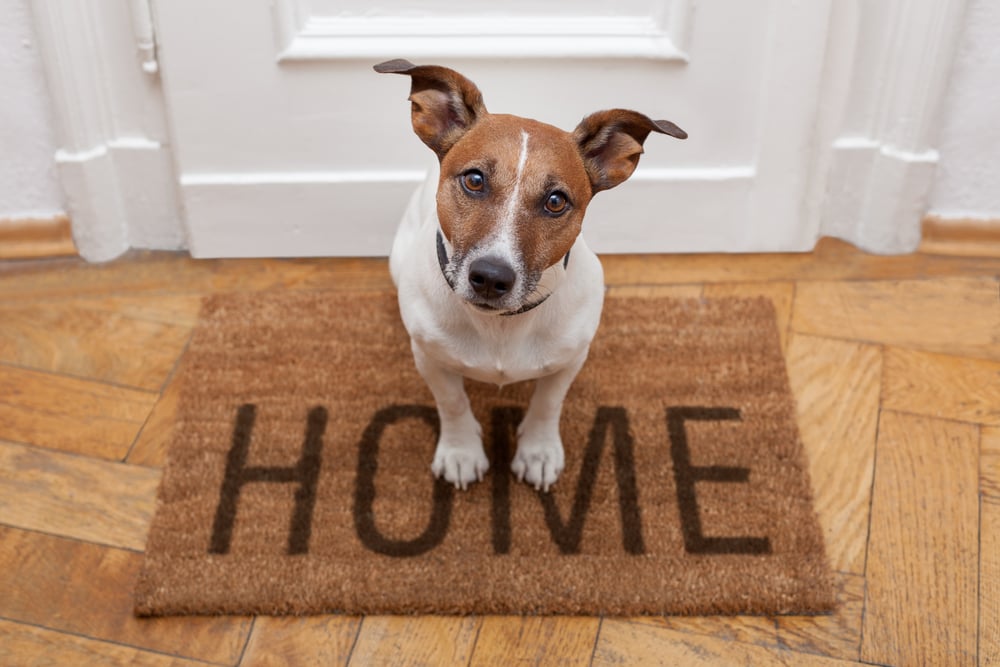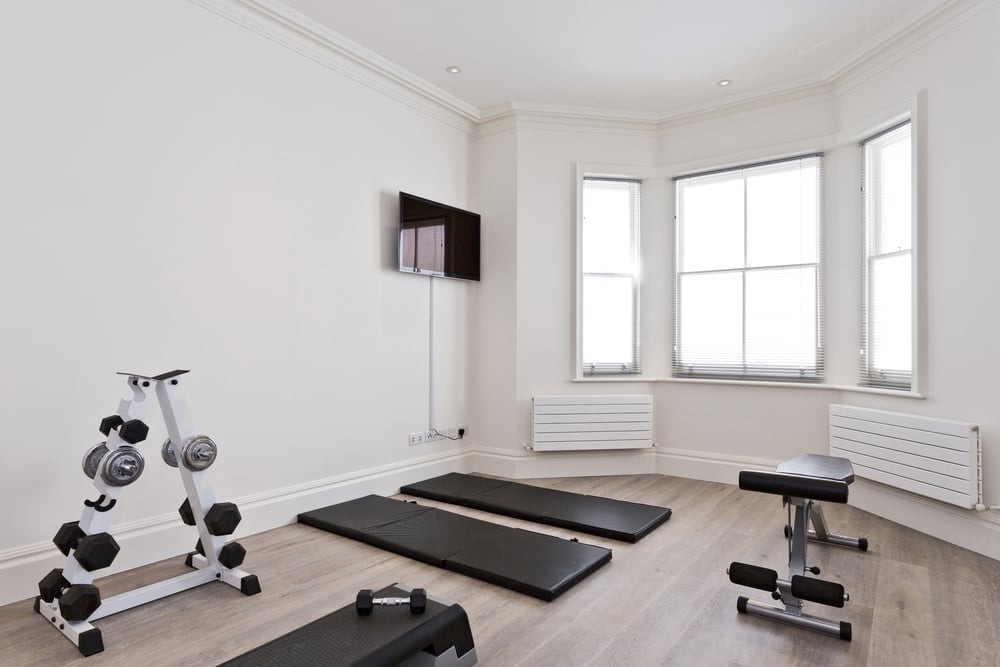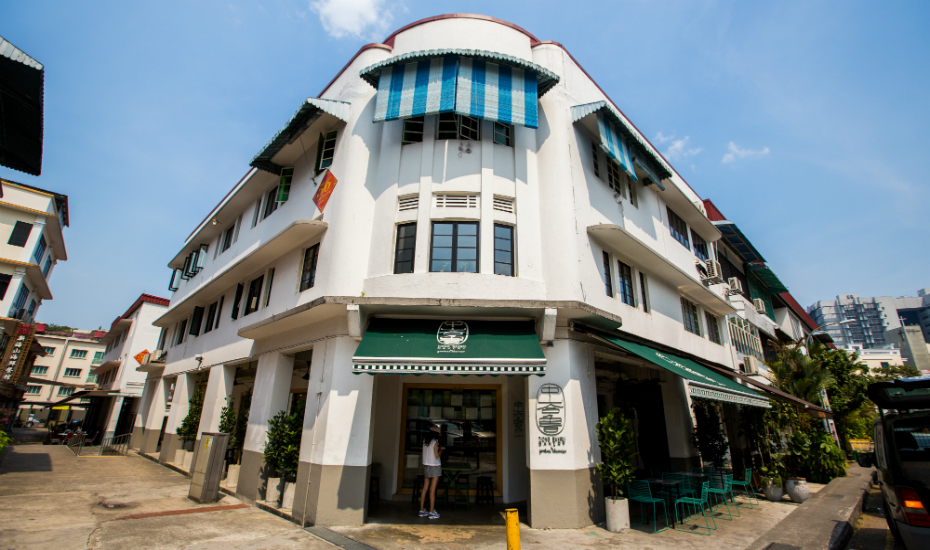Think of Greenwich Village in New York City, West Hollywood in Los Angeles, Castro in San Francisco, Newton in Sydney, and Le Marais in Paris. What do these cities have in common?
They are all well known ‘gay villages’ that have gone through gentrification. Formerly known for being less developed and run-down areas, they are now the hip and trendy high-end districts today because of the queer communities who breathed new life and energy into these neighbourhoods.
Closer to home, right here in our own lion city, Singapore, those in the know will be familiar with a few locales that appeal to the LGBTQ+ communities. Popular places include Tiong Bahru estate, Joo Chiat district and the Tanjong Pagar stretch of shophouses where most of the city’s gay bars congregate. One can’t help but wonder if the ‘gay-trification’ effect has a role to play with the popularity of these areas too.
As a realtor specialising in serving the LGBTQ+ community, I’ve gotten to be very familiar with the many common quirks and idiosyncrasies shared by them when it comes to buying a property. There are many things queer home buyers share in common and while I can relate to them, some can lead to potentially bad purchase decisions that could come back to haunt them in the future.

Here are 10 things that LGBTQ+ home buyers (tend to) have in common:
(Disclaimer: These are purely my observations and by no means represent all LGBTQ+ persons.)
1. They want privacy!
Although this is a common requirement from most buyers who are looking for a home for their own stay, it is often a very important one to the LGBTQ+ folks because they are protective of their lifestyle and sensitive to environments that may not be queer-friendly. They tend to select a property that has a good level of privacy such as an apartment that is not overlooked by another and vice versa. Similarly, they would shun ground floor units or those situated along a common walkway where people can easily peep into their apartment.
2. They look for smaller developments
Many LGBTQ+ home buyers prefer projects that are perceived to be ‘more exclusive’ – i.e. small apartment buildings with fewer residents (less than 100). This stems from their desire for privacy. Some popular examples of such developments can be found in Kembangan, Newton/Novena, and River Valley.
Pitfall:
I always caution buyers to be mindful that capital appreciation tends to be slower for small apartments as compared to bigger ones. A simple reason is that an active buy/sell volume is needed to keep prices moving in an apartment and small apartments typically do not transact as frequently. When fewer people are selling, prospective buyers are unable to have a good reference on recent pricing trends and thus sellers could be stuck with no offers from these buyers.
While small apartment buildings tend to have lesser facilities than larger ones, their monthly maintenance fees may not be correspondingly lower. In fact, some buyers would find themselves paying a higher maintenance fee because of the smaller number of owners sharing the total building management cost.
3. They prefer pet-friendly places
It is common to see LGBTQ+ folks being fur-parents since it’s a near insurmountable task to have their own child in Singapore. As such, having a pet-friendly environment is often high up on their list of requirements when searching for a new home. Apartments with a good outdoor patio or one that’s near an open park are usually preferred by dog owners, while buyers with cats as pets seek out spaces that are safe for fur-babies, such as one that is on a lower floor.

4. They avoid places targeted at families with kids
While pets are considered well-loved companions for most queer folks, the same isn’t necessarily true when it comes to children. In my experience, about 7 out of 10 LGBTQ+ clients would typically ask me to avoid condominiums that are popular with families with children. In fact, during viewing appointments, any presence of screaming kids by the pool (or anywhere in the compound really) could often be an instant deal-breaker.
Pitfall:
Though most LGBTQ+ clients may prefer neighbourhoods with fewer kids, mass-market condominiums targeted at families do tend to perform better in the resale market. This is because such condominiums tend to be situated near amenities and good schools, and are well linked to transport nodes. Such factors are highly sought after by HDB upgraders, private property buyers and investors who see them as great value-adds to the property.
5. They prefer to live in the city centre/fringe district
For socially active LGBTQ+ home seekers, living near to or in the city centre is important. As such, housing estates along the fringe of the city centre, such as Queenstown/Bukit Merah, Jalan Besar/Kallang and Balestier/Toa Payoh, tend to be very popular with these buyers looking for their first home.
Pitfall:
With such premium locations, do expect prices for these properties to be much higher than those in the outside central regions (OCR). Buyers on a strict budget would thus likely need to settle for a smaller unit than preferred if they want to live near the city centre.
6. They want to be near hip cafes/ bars. And their gym!
Okay, this could be a chicken-or-egg situation. Many LGBTQ+ folks like to live near popular amenities such as cafes, bars and fitness clubs. Think places like Tiong Bahru, Tanjong Pagar, Little India and Katong. While these are popular residential locations, one could argue that they have come to be so as a result of the LGBTQ+ gentrification effect.
First come the gays, then the hipster cafes, gyms and pilates studios. (Just saying!)

7. They love penthouses, lofts and roof terraces
Penthouses, loft apartments and rooftop terraces are often marketed as dream homes of the fabulous and glamorous – the ultimate bachelor(ette) pads. They make for great places to entertain friends and host dinner parties. Often, many LGBTQ+ clients would not mind paying a premium in order to live in a place like this that complements their lifestyle.
Pitfall:
As sexy as it may sound, penthouses, lofts and rooftop terraces are never easy to sell in the resale market. The extra high ceilings and rooftop space that are the pride and joy of the owners are often viewed as void space and thus discounted by potential buyers. This generally equates to a -50% in the effective psf value.
Penthouse units attract a very niche (thus, smaller) group of buyers. This makes them harder to sell. Traditional families with elders and children will find the duplex level an inconvenience and a safety hazard. That means the potential buyers are likely to be singles and younger couples who like it for its aesthetics and grandeur. However, these groups also tend to have smaller budgets due to their lower disposable personal or combined income levels.
The maintenance fees are also higher for penthouse units because of the higher share value versus other units in the same building. They are also costlier to maintain – just think of the cleaning fees for that 6-metre floor to ceiling window and curtains, plus the regular servicing needed for the large rooftop jacuzzi.
8. They like to buy older HDB flats
For those LGBTQ+ buyers that private properties are out of reach financially, they tend to wait until they turn 35 to buy an HDB flat that is more affordable. However, the BTO option for singles is not ideal as they can only buy a 2-room Flexi flat in non-mature estates. These tend to be further away from the city. As such, most LGBTQ+ singles will opt for resale HDB flats with many of them going for older HDB flats (more than 35 years) in mature estates such as Toa Payoh, Ang Mo Kio and Tiong Bahru.
Reasons such as larger space, lower prices and more convenient locations are often cited by these buyers when asked why they chose these older flats. Some also explained that they are buying a forever home, and since they have nobody to leave the property to when they pass on, they do not see the importance of buying one for its capital growth.
Pitfall:
It has been often discussed that old HDB flats face a decaying lease as they get closer to the end of the 99-year mark. In particular, HDB flats older than 40 years old will see their value slowly depleting over their lifetime. Capital growth will be rare (unless there is a sudden economic boom causing the overall property market to surge such as the one we saw in 2021 during the COVID pandemic). As such, older HDB flats are usually harder to sell in the resale market as the pool of buyers diminishes over time.
Younger buyers (say a 35-year-old) buying a very old HDB with less than 60 years left will also face a problem when the remaining lease is not enough to cover the owner to an age of 95 years. This will affect their HDB loan quantum, as well as the CPF withdrawal when they turn 55.
Some LGBTQ+ will argue that they do not care about the capital appreciation, they are buying the flat purely as a forever home – to live and die in. But I call that poor long-term life planning. Say a buyer is 35 years old and we agree on the assumption that he/she will live to be 80, my first question to them is always “do you see yourself living in the same flat for the next 45 years?” To provide more context behind my stand, I would also recommend to them my articles on LGBTQ+ homeownership for those in their 40s & 50s and retirement years.
So herein lies the problem. Unlike straight married couples who are well versed in family planning from young, and taught property asset progression, most in the LGBTQ+ community have never thought of property ownership as a tool to build personal wealth.
Instead, they see it as just a roof over their head. This is understandable since properties are so expensive in Singapore and government policies have not made it easy for singles (of which LGBTQ+ is a part) to buy a property. With an entry age barrier of 35 years old to buy an HDB flat, most will lose out on golden opportunities to buy, sell and profit from property that the straight folks enjoy.
9. They love old walk-up apartments
Another category of housing that attracts LGBTQ+ home seekers is old walk-up apartments such as those pre-war ones in Tiong Bahru and heritage apartments in Joo Chiat. Such apartments are highly sought after because of their unique features and layout, and trendy neighbourhoods. Plus, it fits nicely into all their preferences (see above) for smaller apartments with privacy that come with a pet-friendly and less family-oriented environment.
Pitfall:
Walk-up apartments have a small resale market because it appeals to a smaller and niche group of buyers. They are definitely not for families with elders who will have trouble climbing up and down the stairs.
Although these apartments (in well-located neighbourhoods) can be very popular with expatriate tenants, they tend to have a shorter lease remaining due to their age unless they are freehold. Short remaining leases will be a problem for future buyers as it affects their mortgage loan quantum and they might have to fork out more cash to purchase such a property.

10. They also love conservation shophouses & black-and-white bungalows
Very similar to heritage walk-up apartments, conservation shophouses and black-and-white bungalows are also very much favoured by LGBTQ+ clients. These shophouses can be seen along Joo Chiat and Blair Road in the Spottiswoode area and are popular backdrops for Instagram posts. As for black-and-white bungalows, you can find them in prime districts like Holland, Newton, and Rochester.
Pitfall:
Because of their rarity and thus limited supply, shophouses and black-and-white bungalows are extremely expensive and most will have to resort to renting (at a premium price point) as a way to live in such properties.
If you are a prospective LGBTQ+ home buyer and you find yourself eyeing a property with one or more of the above features, do consider the corresponding challenges and potential pitfalls as well. That said, at the end of the day, finding the perfect home of your dreams is what matters most, and consulting with an LGBTQ+ affirming realtor will make that search an easier and shorter one.
About the Author
William Tan is a licensed realtor with a speciality in servicing the LGBTQ+ community. He is also the co-founder of Prident, a non-profit LGBTQ+ professional collective aimed at helping the community on economic wellbeing issues. William regularly writes and runs webinars to share his knowledge on property investment for LGBTQ+ and has been featured in EdgeProp Singapore, The Edge, Stacked Home, Esquire magazine and The Financial Coconut podcast. He has helped many LGBTQ+ clients with their property portfolio – market to sell, buy and rent properties. He also runs an online LGBTQ+ Clinic to answer private questions from the community.
Read more on PRIDENT here.
The post 10 features favoured by LGBTQ+ home seekers and the related pitfalls they need to be careful of appeared first on 99.co.

